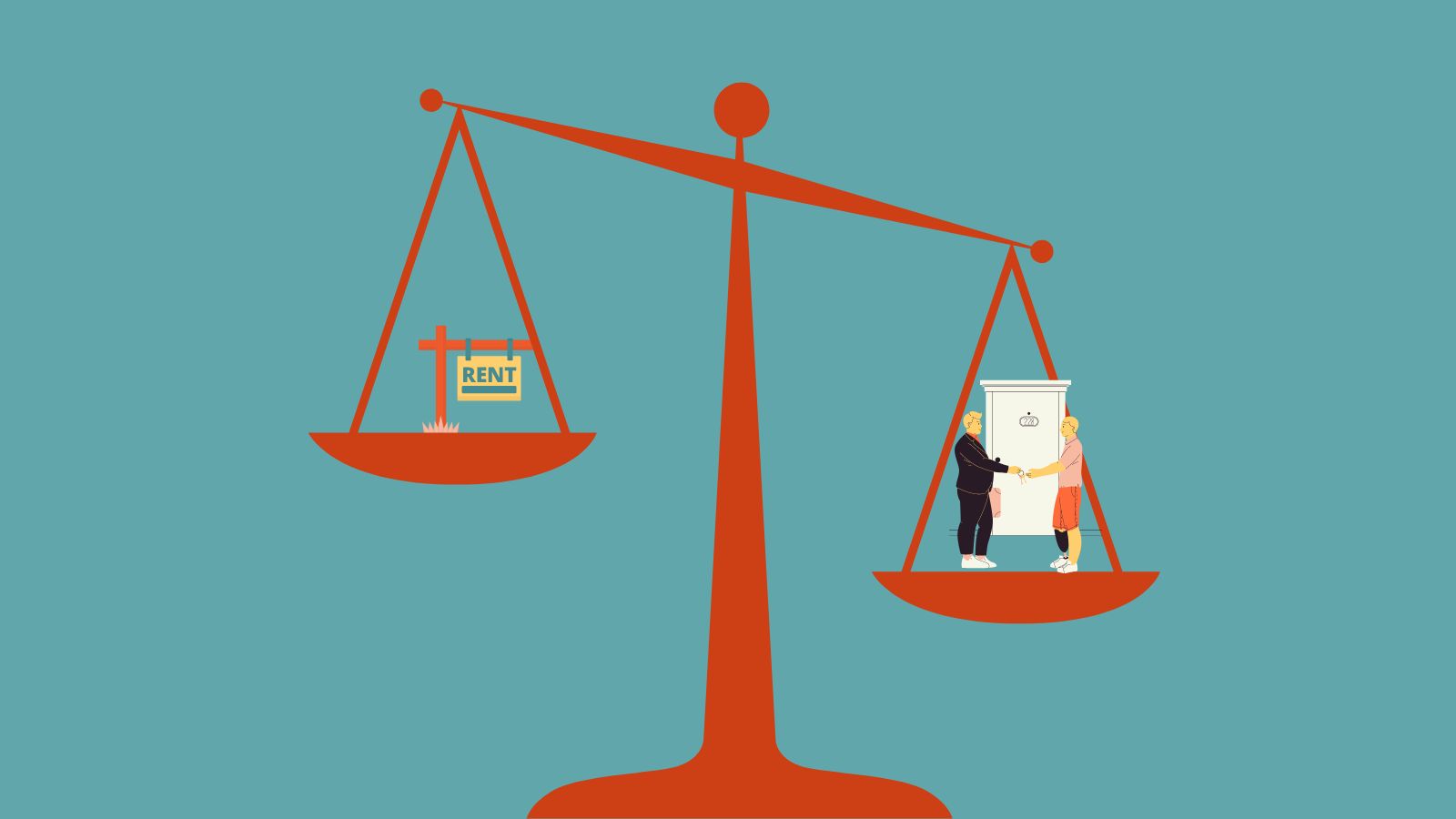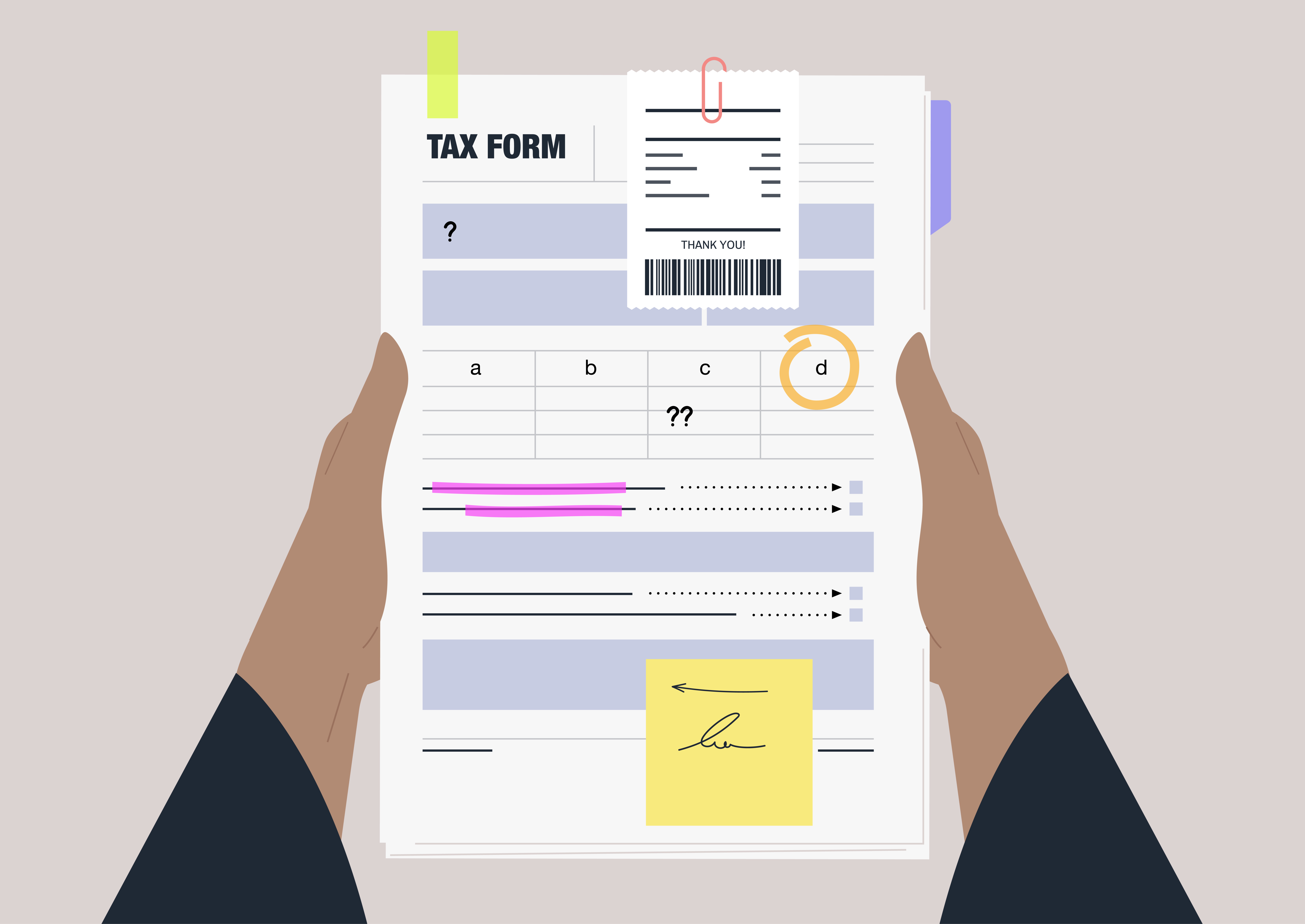How to get a mortgage if you're retired
If you're considering applying for a mortgage in retirement, here's a look at what to expect, as well as some tips for making the process less painful


A free daily email with the biggest news stories of the day – and the best features from TheWeek.com
You are now subscribed
Your newsletter sign-up was successful

If you're already retired and have tried to get a mortgage, you may have been surprised by how hard it was. And for those who are not yet retired, take note: Getting a mortgage in your golden years isn't necessarily a smooth-sailing process, even if your finances are in stellar shape, with a solid financial portfolio and a stockpile of assets.
"It can get tricky for retirees," Al Bingham, a mortgage loan officer, tells CNBC. "You can have a lot of money but show very little income and have difficulty qualifying for a mortgage."
While Kiplinger reports that the Equal Opportunity Credit Act "technically prohibits lenders from discriminating against borrowers due to their age," getting a mortgage when you're older still includes "unexpected pains — including mountains of documentation, questions about income and repayment, and potential second-guessing on the part of the underwriter."
The Week
Escape your echo chamber. Get the facts behind the news, plus analysis from multiple perspectives.

Sign up for The Week's Free Newsletters
From our morning news briefing to a weekly Good News Newsletter, get the best of The Week delivered directly to your inbox.
From our morning news briefing to a weekly Good News Newsletter, get the best of The Week delivered directly to your inbox.
If you're considering applying for a mortgage in retirement, here's a look at what to expect, as well as some tips for making the process less painful.
Why is it so hard to get a mortgage in retirement?
When you apply for a mortgage, lenders want to know about your income, among other financial factors. While you technically may have an income in retirement, it's generally fixed — in other words, you're no longer regularly bringing home a paycheck. Additionally, it's possible your income is lower than it was during your working years.
Both of these factors may make it more challenging to convince a lender that you're in a good position to pay back a mortgage. In retirement, your income likely comes from a number of sources, such as a retirement plan, a pension, or Social Security. While all of these offer income, some are seen as "finite income sources because they're depreciating assets," per Chase. The bank adds that "[m]ost lenders will ask you to prove there's enough money in these accounts to provide a stable income for at least three years." You'll also need to show that you're receiving regular income on a monthly basis from these funds.
When you apply via links on our site, we may earn an affiliate commission
A free daily email with the biggest news stories of the day – and the best features from TheWeek.com
Is the qualification process different for retirees?
Perhaps the biggest difference in the mortgage qualification process in retirement compared to your working years is the documentation you'll need to provide. "Lenders typically require income documentation going back two years," Forbes notes. This can be a challenge if you've been retired for more than that length of time. Instead of handing over your W-2s, "you'll need to show evidence of Social Security, pension income, dividends and interest payments," the business magazine says.
It will also take more legwork to establish your income when you're retired than it would have when you were employed. You may be "inundated with requests for information," as was the case with one retired applicant Kiplinger spoke to. "The bank not only wanted to know the status of his checking and savings accounts, investment funds and Social Security withdrawals, but also the reason for every single transfer over $1,000. If he took money from a family trust, the bank required that he provide a note and backup documentation to validate the transaction as legitimate."
To get his mortgage, this applicant eventually had to get an exclusion from his bank, which was basically an acknowledgment that he had the funding, even if he technically did not meet the bank's criteria.
How to make it easier
If you need to apply for a mortgage in retirement, or if you're planning ahead for that period in life, here are some tips to keep in mind:
- Apply for a mortgage before retirement if you can. If you're still working and know that you'll want to buy a house, make moves to get a mortgage before you retire. "Banks underwrite mortgages based on income, and when you are retired, you often have assets not income," Kiplinger says.
- Get your documents in order. Be prepared to get a lot of requests for documents, many of which you'll need to upload online. "If you secured a mortgage 20 or 30 years ago, you might not realize that you'll need to be much more computer savvy," Kiplinger says. Start collecting any paperwork that might be relevant in advance. And if you don't know how to upload documents, ask for a tutorial.
- Mentally prepare for intensive tracking. It's possible your lender will want information on any transaction you make for more than $1,000. So be prepared to provide that level of information on your finances.
- Think about a HELOC as a fallback. A home equity line of credit, or HELOC, allows you to tap into the equity of your current home to provide extra cash as needed. If you're in a bind trying to buy during retirement, that could help you out.
- Be communicative. Stay in touch with your loan officer, and don't hesitate to ask for help with any steps of the process.
Becca Stanek has worked as an editor and writer in the personal finance space since 2017. She has previously served as the managing editor for investing and savings content at LendingTree, an editor at SmartAsset and a staff writer for The Week. This article is in part based on information first published on The Week's sister site, Kiplinger.com
New Tax Rules for 2023: Download your free issue of The Kiplinger Tax Letter today. No information is required from you.
Becca Stanek has worked as an editor and writer in the personal finance space since 2017. She previously served as a deputy editor and later a managing editor overseeing investing and savings content at LendingTree and as an editor at the financial startup SmartAsset, where she focused on retirement- and financial-adviser-related content. Before that, Becca was a staff writer at The Week, primarily contributing to Speed Reads.
-
 Switzerland could vote to cap its population
Switzerland could vote to cap its populationUnder the Radar Swiss People’s Party proposes referendum on radical anti-immigration measure to limit residents to 10 million
-
 Political cartoons for February 15
Political cartoons for February 15Cartoons Sunday's political cartoons include political ventriloquism, Europe in the middle, and more
-
 The broken water companies failing England and Wales
The broken water companies failing England and WalesExplainer With rising bills, deteriorating river health and a lack of investment, regulators face an uphill battle to stabilise the industry
-
 A guide to cashing out your retirement accounts
A guide to cashing out your retirement accountsSpeed Read Does order matter? What's the best strategy for taxes?
-
 4 REITs to watch
4 REITs to watchSpeed Read A selection of real estate investment trusts with "exceptional pricing power"
-
 What is 'lifestyle inflation' and how does it limit wealth?
What is 'lifestyle inflation' and how does it limit wealth?Speed Read More money, more problems? Not necessarily.
-
 How to free yourself from credit card debt
How to free yourself from credit card debtSpeed Read Has your balance gotten out of control? Personal finance experts have some solid tips and tricks to help you get on top of your credit card debt.
-
 Renters' rights, explained
Renters' rights, explainedSpeed Read The Biden administration announced new federal actions to protect tenants as rent prices continue to climb. What rights do renters have already?
-
 A smart guide to ESG investing
A smart guide to ESG investingSpeed Read Some say ESG investing is better for the planet. But is it good for your wallet, too?
-
 7 tax breaks that could save you money
7 tax breaks that could save you moneySpeed Read Brush up on these tax breaks before you file to make sure you're not overpaying
-
 How to check — and improve — your credit score
How to check — and improve — your credit scoreSpeed Read A smart guide to your credit and how to make it better
